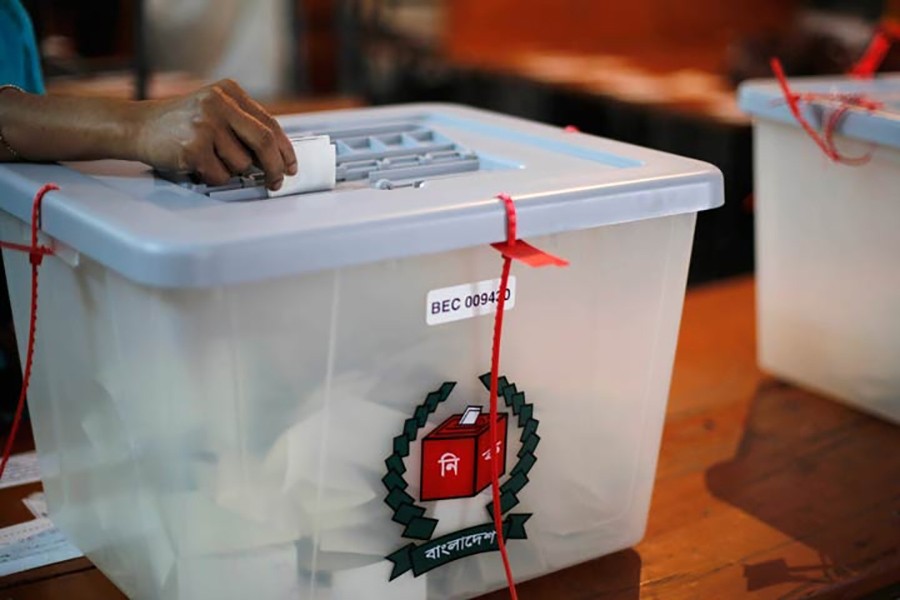Election Commission (EC) has prepared a record Tk 7.02-billion budget for holding the upcoming 11th Jatiyo Sangsad (JS) election, with maintenance of law and order receiving the largest share, officials said.
The overall budget spending registered over 40 per cent increase than that of the 10th parliamentary election, held in January 2014.
This year, almost 57 per cent of the budget is estimated to be used for maintaining law and order in the national polls, slated for December 30.

The budget estimation, however, excludes the expenses for purchasing EVM (electronic voting machine) materials, which are being brought under a project amounting to over Tk 38 billion.
EC sources said the allocation will be used in 48 areas to successfully complete the JS polls. The allocated funds will be spent under two major areas -- operational activities and law and order maintenance. Of the budget, around Tk 3.0 billion is being allocated for meeting the operational expenses, while the remaining portion will be used for maintaining law and order in and around the polling centres.
Major chunk of the operational expenses (Tk 1.68 billion) will be spent on the officials appointed in taking care of the general election.
Besides, Tk 0.40 billion is allocated for printing materials, and Tk 50 million will be used for carrying voting materials to the polling stations.
Seeking anonymity, an EC official said the budget allocation has gone up because of the increase in the number of polling centres in the forthcoming polls and also rise in inflation.
He said the number of polling centres rose to 40,000 this time, which was 36,000 five years ago. This election is also different from the previous one, as all the major political parties are set to contest in this election.
"So, the number of polling officials has increased, and the amount of allowance has also increased due to inflation and other factors. The number of voters has also gone up. So the hike in expenditure is logical," he added.
Alongside law-enforcement, 700,000 polling personnel -- including 40,199 presiding officers, 80,000 assistant presiding officers and around 600,000 polling officers -- will be required to hold the 11th JS election, where 104.2 million voters will cast their votes, according to EC.
Meanwhile, Shusashoner Jonno Nagorik (Shujan) Secretary Badiul Alam Majumdar said the country can spend money for holding an election that will not be biased to any quarter.
He also said it was observed in many cases in the past that members of the law-enforcement agencies created obstacles to holding free, fair and acceptable polls.
"If the increased spending brings something positive for the nation, then it is good and acceptable," he opined.
Transparency International Bangladesh (TIB) Executive Director Dr Iftekharuzzaman said getting the required budget for holding election is among the constitutional rights of the EC.
"But it needs to be scrutinised whether the spending is logical and justified."
He said EC's spending is being audited each year by the authorities concerned, but the audit objections are not shared publicly.
"If they share these audit reports, trust of the people upon the commission will increase manifold."
He also suggested regular auditing of each budget for holding the parliamentary polls.
About the increased spending for maintaining law and order, he said the law-enforcers, like - police, Ansar and RAB etc, are representing the government, and they can get special allowances for discharging their duties during the election.
"But how much are they getting from their respective agencies and EC? Is it justified? It should be considered," he added.
The cost of the first parliamentary election, held in 1973, was Tk 8.1 million.
The EC's budgetary expenditure was Tk 1.655 billion in the 9th general election. It was Tk 727 million in the 8th general election, Tk 370 million in the 7th, Tk 244 million in the 6th, Tk 52 million in the 4th, Tk 52 million in 3rd, and Tk 25 million in the 2nd election.


